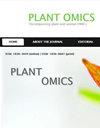Germination and seedling growth of barley as affected by Artemisia annua water extract
Q3 Agricultural and Biological Sciences
引用次数: 9
Abstract
Laboratory and greenhouse pot experiments were conducted to assess the allelopathic effects of Artemisia annua water extract on germination and growth of barley. Lower concentrations of A. annua water extract (0.5 and 1.0 %) did not affect the germination of barley seeds. However, higher concentrations (1.5-3.5 %) resulted in significant reductions in the germination percentage. Seedling growth of barley was also affected by A. annua water extract. Both shoot and root lengths were negatively affected by A. annua water extract and the degree of inhibition was concentration dependent. When barley seedlings were subjected to 0.5% extract concentration, shoot length was inhibited by 6% while root length showed 18.5% inhibition over control seedlings. The lowest shoot and root lengths were recorded at 3.0 and 3.5 % water extract. At 0.5 % extract concentration, shoot and root fresh and dry weights were significantly unaffected compared with the control. Shoot fresh weight was significantly unaltered when seedlings were treated with 1.0 % extract. However, at the same concentration root fresh weight, shoot dry weight, and root dry weight were inhibited by 44.7, 33.3, and 40 %, respectively. The present results confirmed that root growth (length and weight) was more sensitive to A. annua water extract than shoot growth. The present results also indicated the presence of water soluble allelochemicals in A. annua that are able to inhibit growth of barley.黄花蒿水提取物对大麦发芽和幼苗生长的影响
通过室内和温室盆栽试验,研究了黄花蒿水提取物对大麦发芽和生长的化感作用。较低浓度的黄花蒿水提取物(0.5%和1.0%)对大麦种子的萌发没有影响。然而,较高的浓度(1.5- 3.5%)导致发芽率显著降低。黄花麦水提取物对大麦幼苗生长也有影响。黄花楸水提取物对茎长和根长均有负向影响,且抑制程度呈浓度依赖性。当大麦幼苗处理0.5%的提取物浓度时,茎长比对照幼苗抑制6%,根长比对照幼苗抑制18.5%。在含水量为3.0和3.5%时,茎长和根长最低。提取物浓度为0.5%时,茎和根的鲜重和干重与对照相比未受显著影响。幼苗用1.0%提取物处理后,鲜重无显著变化。但在相同浓度下,根鲜重、地上部干重和根干重分别被抑制44.7%、33.3%和40%。本研究结果证实,根生长(长度和重量)对黄花蒿水提取物的敏感性高于茎部生长。本研究结果还表明,黄花麦草中存在可抑制大麦生长的水溶性化感物质。
本文章由计算机程序翻译,如有差异,请以英文原文为准。
求助全文
约1分钟内获得全文
求助全文
来源期刊

Plant Omics
生物-植物科学
CiteScore
1.30
自引率
0.00%
发文量
0
审稿时长
6 months
期刊介绍:
Plant OMICS is an international, peer-reviewed publication that gathers and disseminates fundamental and applied knowledge in almost all area of molecular plant and animal biology, particularly OMICS-es including:
Coverage extends to the most corners of plant and animal biology, including molecular biology, genetics, functional and non-functional molecular breeding and physiology, developmental biology, and new technologies such as vaccines. This journal also covers the combination of many areas of molecular plant and animal biology. Plant Omics is also exteremely interested in molecular aspects of stress biology in plants and animals, including molecular physiology.
 求助内容:
求助内容: 应助结果提醒方式:
应助结果提醒方式:


